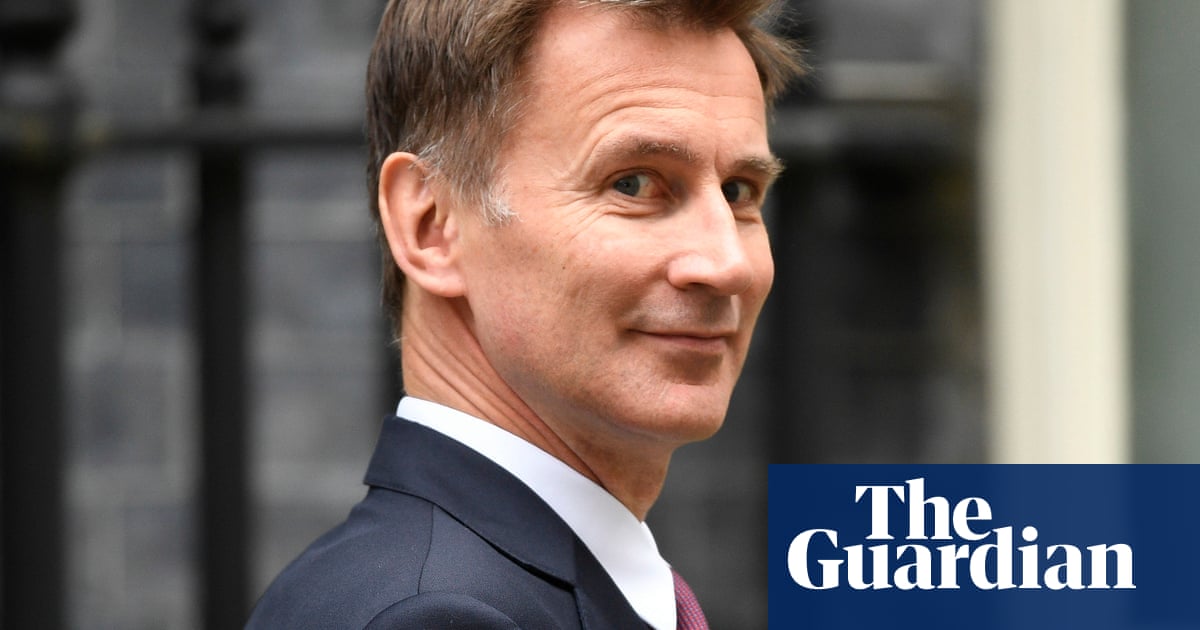Former chancellor Jeremy Hunt has said theConservativescannot rule out becoming extinct because of a “massive earthquake” in politics that is seeing the fracturing of the old two-party system.
Senior Conservatives are increasingly alarmed about polls that show support for the party plummeting, whileReform UKis soaring.
Those supportive of the leadership have urged colleagues not to panic and to give Kemi Badenoch more time to turn things around.
Former Tory leader William Hague said this week that Badenoch should not give in to those urging a pact with Nigel Farage’s Reform, joining former cabinet ministers Andrew Mitchell and John Glen in urging colleagues tokeep coolabout the party’s predicament.
However, others believe there might not be much of a party left to save if Reform continues on its current trajectory.
Some Conservative party sources said there appeared to be “very little dynamism” within Conservative Campaign Headquarters about trying to turn the party’s electoral fortunes around, while many local activists and some agents have already made the leap to supporting Reform.
On Wednesday morning, a YouGov Westminster voting intention poll put Reform on 29%, Labour on 22%, the Conservatives on 17%, the Liberal Democrats 16%, and the Greens 10% – suggesting the Tories are now flirting with fourth place in popularity.
The Conservatives were last at 17% in June 2019, in the aftermath of the European parliament elections shortly before Theresa May was ousted, while the result is Labour’s lowest since October 2019, under Jeremy Corbyn.
Asked onTimes Radiowhether the Conservatives could become extinct, Hunt said: “We can’t rule it out. Look at the massive earthquake in western democratic politics in other countries and we are seeing wild swings. I don’t think the Conservative party will ever be extinct, but what may be extinct is the old two-party system”.
In the past, he added, voters swung between the two main parties, while at the moment they “seem to be split between five parties and that’s a very, very big change”.
Hunt emphasised that there was a way back into power for the Conservatives, saying the party’s woes should not be exaggerated.
“We’re less than a year after the heaviest defeat in our history. It’s very unlikely, having kicked us out, voters are going to come running back to the Conservatives within just a matter of months and we do need to have a period of reflection, and it is going to take a few years before people will give us another look,” he said.
The former chancellor George Osborne also weighed in on the Conservative party’s fortunes on Wednesday, saying the party was making a mistake focusing on culture wars and trying to ape Reform. He told LBC: “If we spoke a little bit less about transgender toilets and a bit more about taxes, then we might be on to something. No Conservative opposition in my lifetime has got back without winning back credibility on the economy and making that the central offer at the election.”
He suggested he would struggle to vote for the Conservative party in alliance with Nigel Farage, and said: “I don’t personally think chasing Nigel Farage’s tail is going to work. And if you want Nigel Farage, why not have Nigel Farage? I think the 10-year trend inside the Conservative movement of trying to copy the Brexit party or the Ukip party or now the Reform party has not really worked.”
The Conservatives attempted to get on the front foot against Reform on Tuesday by publishing a proposed law setting out a plan to deport all people who enter the country by illegal routes, and accused Labour and Reform of being “complicit in the trade of empty slogans”. It would involve disapplying the Human Rights Act from all immigration-related matters, which the party says is necessary to stop foreign nationals “exploiting” the courts.
A Labour source said the Tories had 14 years in office to enact any of the “rehashed and half-baked” policies in their bill, and instead had left the asylum system in a “chaotic mess”.
